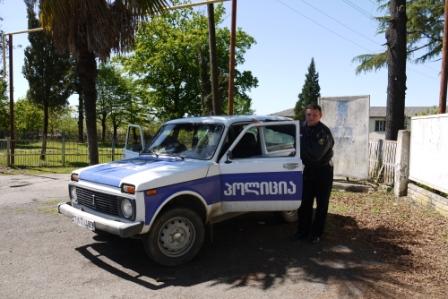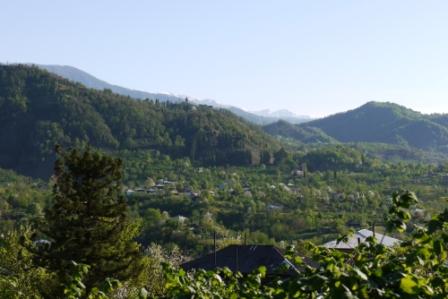Many things in Azerbaijan had seemed strange, so suppose this wasn’t any different. I’d been staying in Baku with Brian and his daughter Savannah, expecting to sleep on the couch. But no, I’d had the master bedroom. En suite. With a sunken bath.

An art teacher at one of the International Schools, oils were Brian’s medium. Bright, colourful paintings. Of course, being Azerbaijan, taking them out of the country required payment of a hefty fee to have them certified as not being a national treasure. Even if one was so obviously his daughter. And his signature was on the canvas. Not like you were trundling off with the Elgin Marbles in a wheelbarrow.
They’d lived in Mongolia. Surviving largely on tinned food and sheep fat, heading out in the winter in temperatures of minus thirty-five. Too cold for snow outside, inside in the stairwell the air warm and damp enough to produce a light dusting of the white stuff. Their time spent in China sounded much more appealing, fascinating anecdotes, useful insight into what I might find when I get there.
There’d be ample opportunity to discuss many issues at length. Favourite amongst them was the classification of countries. First World. Second World. Third World. Developed. Developing. Surely every nation was still developing? The British Empire used to be readily identifiable as the pink bits on a map. But what of those countries that were largely nondescript, for whom existing monikers didn’t really fit? Like Azerbaijan, suggested Brian. They were beige. Not bold, like red or black. Not especially better than any other country, nor especially worse. Neutral. Not to be meddled with, no matter how well-intentioned. They’d need to be left alone to find their own place in the world. Help offered perhaps, never imposed.
Brian and Savannah been very understanding of my own trials and tribulations, my attempts to board a ship to Kazakhstan, thwarted, it seemed, at almost every turn. And my efforts at preparing dinner. It wasn’t the food as such, more my dismantling of one of the kitchen units to unstick a drawer. Sometimes it’s best not to see what the chef’s up to.
[The author is hugely indebted to Brian and Savannah for being such generous and understanding hosts. And for quite a while. Original painting copyright Brian Hawkeswood. Image reproduced above with kind permission of the artist]




